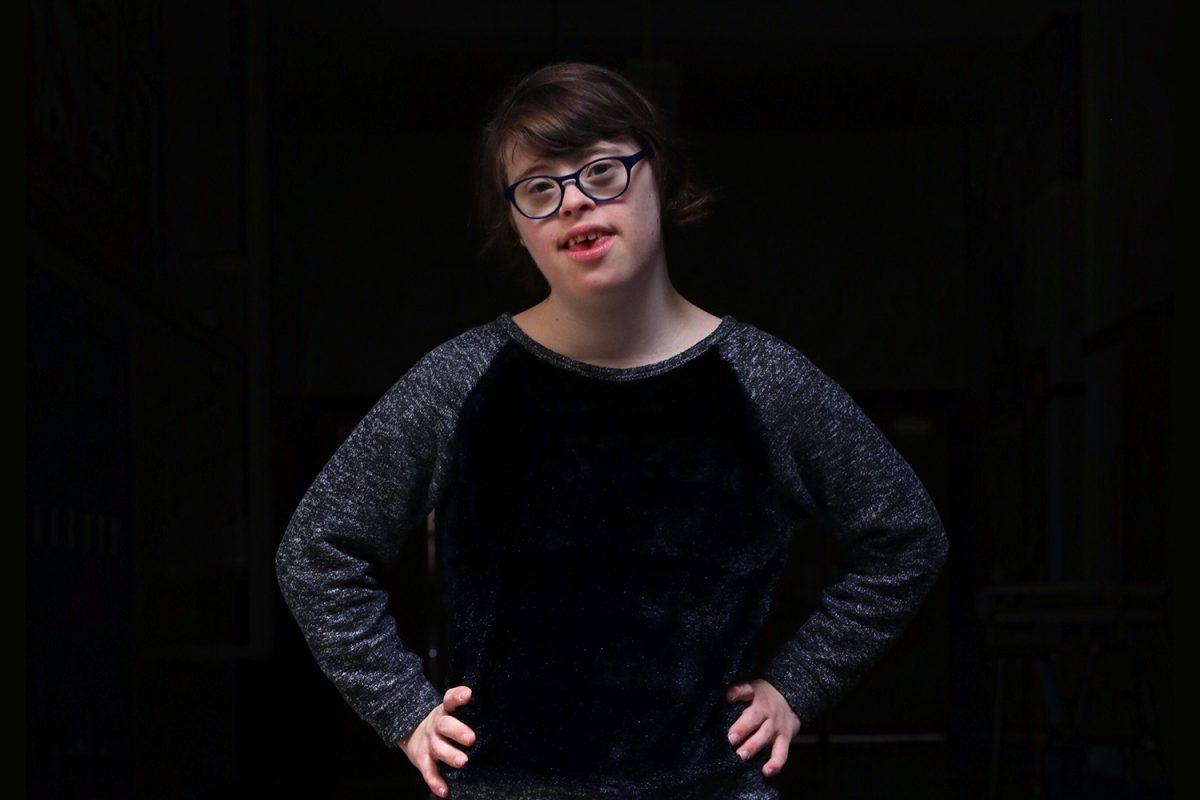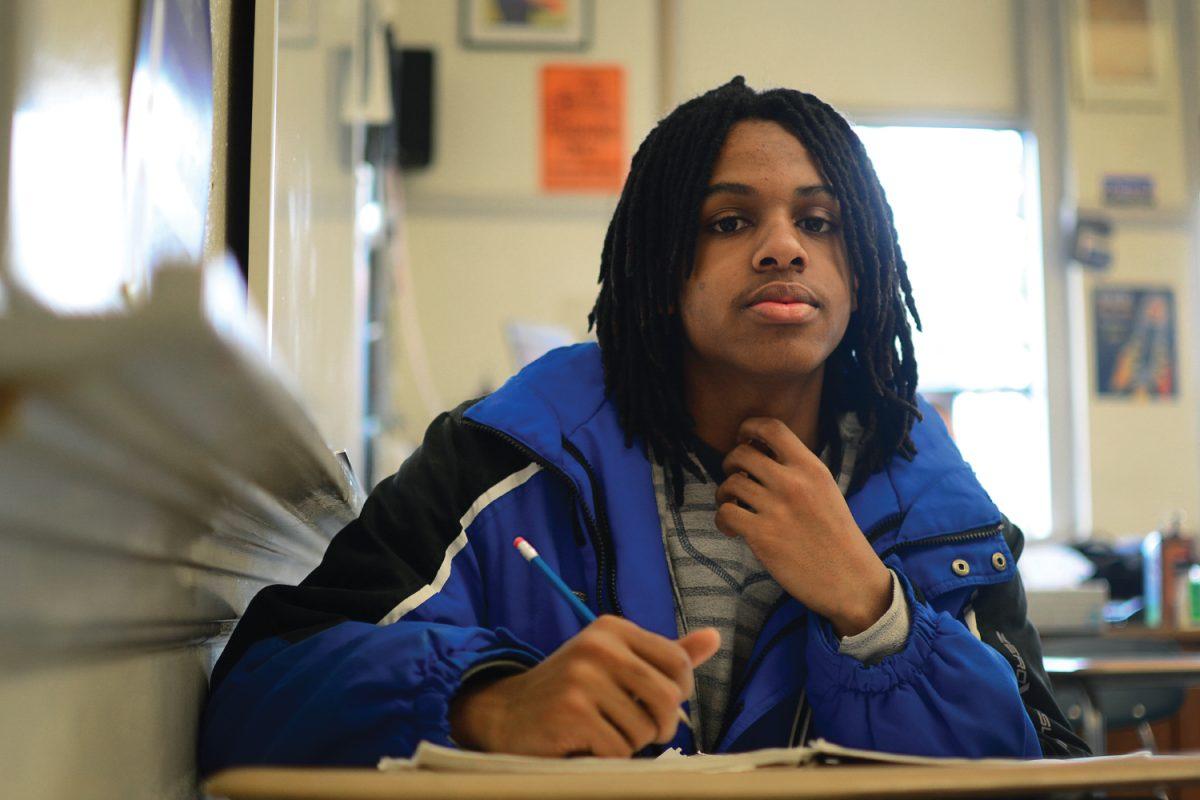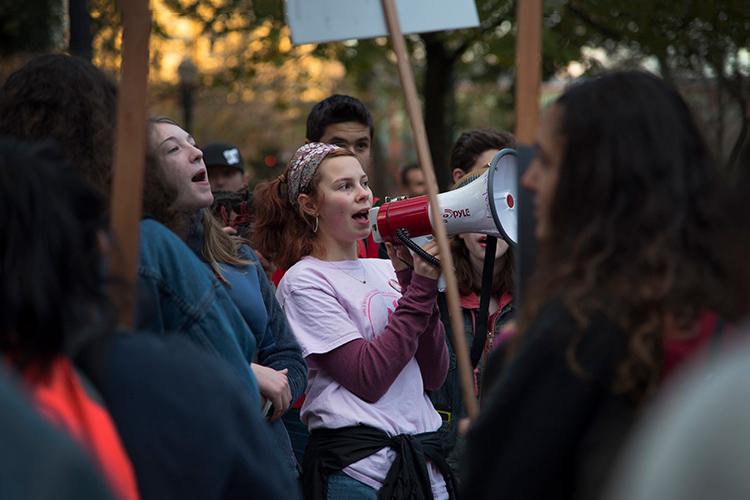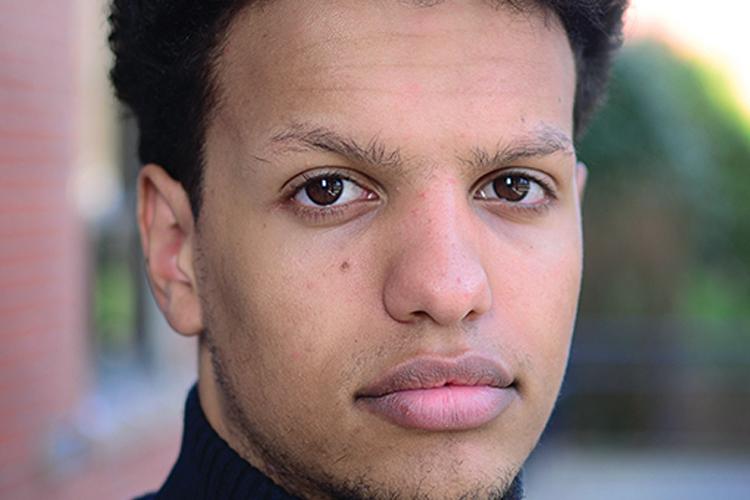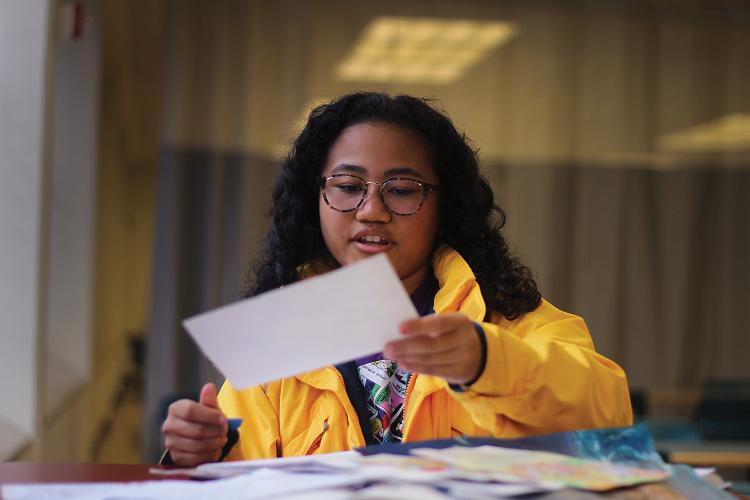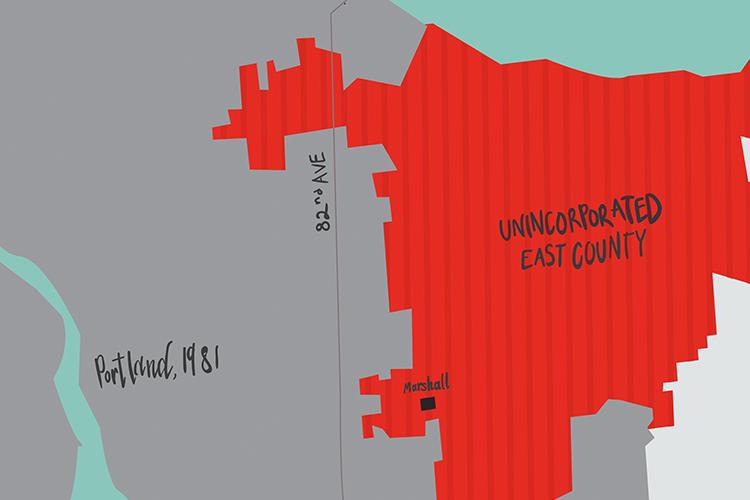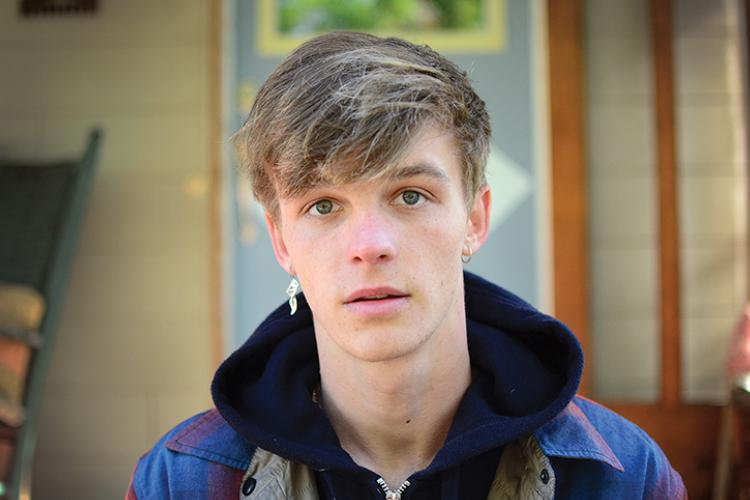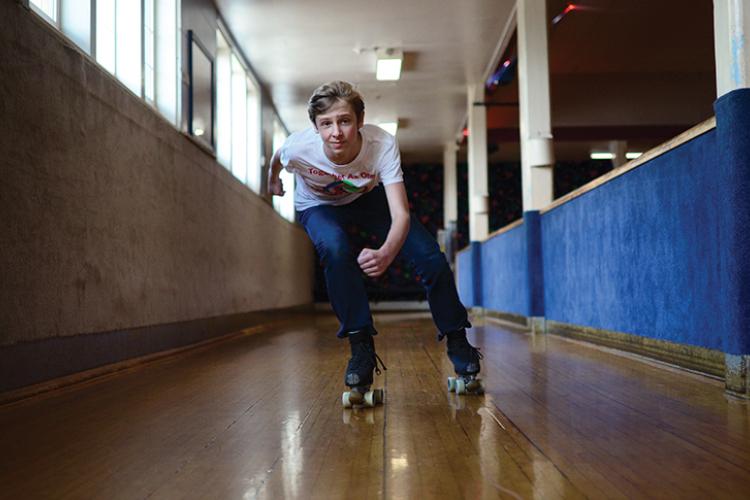It’s August 2016 in San Francisco, Calif. at the Pokémon Trading Card Game World Championships, and a match is underway. Then-16-year-old Sam Hough sits poker-faced at a table in front of thousands of people, with many more watching live from a broadcast. In the opponent’s seat is Dylan Bryan, in his twenties, considered to be one of the best Pokémon players in the world. This next 50 minutes will determine the winner of the match.
Overwhelmed with nerves, Hough commits a gameplay error by playing a trainer item illegally, costing him three out of six prize cards. He is halfway to losing. But 45 minutes later, Hough stalls Bryan by making him use up all his cards. He ends up on top – flying home to Portland four days later with a 3rd place title in the championship.
Established in 1996 in Japan, Pokémon Trading Card Game is a collectible card game with organized events around the world. Tournaments of all sizes allow players to compete against and learn from one another. When Hough started playing the game at age 8, he was more interested in the Pokémon community itself than he was in winning.
Hough has since competed in five world championships, the first two international championships ever and many more regional events. But it wasn’t until high school that Hough began openly sharing his Pokémon career. His instinct in middle school was to keep it hushed in fear that classmates would tease him.
“Part of it is from being considered different, but I think a lot of it stems from middle schoolers not being as comfortable being themselves, like not having an identity,” he says.
Hough struggled to find common ground with classmates outside of the Pokémon community and instead preferred to stick with fellow players with whom he shared a passion. “Having a lot in common with someone and being able to have really good conversations and laugh a lot makes the events way more fun.”
But in recent years, Hough has become open about his impressive Pokémon career. “I know what I’m good at,” he says. “I know what I like. People have things that they’re good at; they have things that they like. I’m not going to judge them; they’re not going to judge me.”
Hough was born in Portland on September 28, 1999 to parents George Hough Jr. and Louis Paradis, he was the youngest of three kids. Hough was quickly identified as curious and eager to learn.
In Hough’s third grade year at Alameda, his father, George Hough Jr., worked as a professor at Portland State University. One day, Hough Jr. took his son to observe his Methods and Statistics class and says he was taken aback by his son’s curiosity. “He asked more questions than the rest of the class combined,” he remembers.
Back at home, Hough took interest in games introduced to him by his brother, George Hough III. The two were fairly close, but Hough III’s Asperger syndrome – a developmental disorder affecting one’s ability to socialize and communicate – made things, as Hough describes, “a rollercoaster” at home. “(It) made me constantly have to worry about something going wrong,” he says.
But the brothers found common ground through Pokémon and played against each other for fun using loose rules and old decks. It was in 2009 that Hough competed in his first organized event ever – a regional championship in Salem, Ore..
“It was really different from anything I’d ever done before because it’s a pretty big venue, and there’s hundreds of people … I had never seen a lot of the cards before or met the people,” Hough recalls. As a 9-year-old, he won three out of seven games and left feeling awestruck at the world of Pokémon. “It opened my eyes,” he says.
In the Pokémon Trading Card Game, players use cards – they can be Pokémon characters, trainers, item cards, stadium cards or supporters – to create the best attack to knock out the opponent’s Pokémon. The first player with no prize cards – or cards set aside at the beginning of the game – no Pokémon left in play or no cards in their deck loses. While some view the cards as collectors items, Hough and other serious players know how much strategy and practice goes into using them.
“It was a challenge to think through all the thought processes of a game, and it was something that was fun and also rewarding mentally,” Hough says.

He continued to play at home, but it wasn’t until 2010 that he started competing regularly and fully understanding the ways of the game. He often visited a game store called Loki’s Games where he talked to employees and tournament organizers, or TO’s, that run and monitor organized events. “The TO’s in our area are really welcoming of anyone that comes in,” he says. “They told me who was good at the game for my age and how I can get better.”
While things were picking up for his Pokémon career, things at home were still rocky, especially after his parents’ divorce several years earlier and the financial complications that came with it. “Money was tight,” says Hough. But his family always supported his interests. “My mom took time out of her day and work, and money, to take me to events and watch after me,” he recalls.
By the time Hough was 10, he knew almost everyone in the Oregon Pokémon community. “You can go and talk to people, and they’ll be very open to be like, ‘Oh hey, I’ve heard about you, or you seem really cool. Do you want to play with us?’” he says. “You start talking to them and then you become friends. It just keeps growing and growing.”
After winning the Tacoma State Championship in 2011, Hough committed to Pokémon. He now had friends all over Oregon and Washington to learn from, and he went to every event he could. “I realized I could do better than I thought I could. That was big. It definitely gave me a lot of confidence, especially around other players,” he says. “Even doing well at events gets people like, ‘Oh, this person’s good,’ and then you can talk to them because they’re really good. So it … opens some doors.”
Hough qualified for the 2011 World Championship in San Francisco, his first world championship and placed modestly in the event at 39th place.
Around this time, Hough entered middle school at Beaumont. He made some friends in his classes, but school didn’t offer the same welcoming community as did Pokémon, since his hobby didn’t mesh with those of his classmates.
“For Pokémon, especially the friends that I hang out with, we can just literally talk for hours and hours and hours,” he says. “But with friends from school … we’ll hang out, but it’s not like we have something in common … not something we’re both passionate about.”
He didn’t tell classmates about playing Pokémon, much less his accomplishments in it, due to what seemed to be a stigma around the game. Instead, he told them he was away on vacation when he went out of state to compete in tournaments. “It was inconvenient, going out of your way to not tell people,” he says.
Hough worried that students might not treat the game with the same respect they would traditional sports and activities. Other Pokémon players his age were doing the same: keeping it hidden from peers outside of the community.
Then, in eighth grade, during an activity in his class, Hough let slip that he had been to a Pokémon tournament. “At first they laughed,” he says, “but then I told them more about it, and they thought it was interesting.” Hough was filled with relief.
“It was an irrational fear … I think I just realized that people don’t care. They’re not gonna go out of their way to make me feel bad about myself because I have a hobby,” he says, laughing.
Sharing his secret emboldened Hough. He won two state championships in 2013, earning 3rd place in the National Championship in Indianapolis and made the top 32 cut at the World Championship in Vancouver, B.C.. “That was the season that I was really high-ranked … I felt sort of unstoppable,” he says. He played again at Nationals and at Worlds in 2014, meeting people from all over the country as he traveled farther for events.
In 2014, Hough started at Grant where his curiosity led him to STEM subjects. After taking Chris Downie’s biomedical science class his sophomore year, where he learned about the body’s processes and medical procedures, Hough knew he wanted to pursue science or engineering further. “School’s really important to me. I just really like learning,” he says.
In 2016, he placed third in the San Francisco World Championship and played in the first-ever International Championship, hosted in London, England, where he made the top 64 cut in the Master’s Division. “London’s just really amazing … It was just a totally different experience – a different environment,” he says. Hough stayed with a friend from London but played against players from eight countries and made a friend from Chile, with whom he still keeps in touch.

Today, Hough still plays in local events like League Cups where he can revisit with TO’s that he’s known for years. Seth Kuepker, a TO in Milwaukie who has known Hough since they both started playing, says, “Oregon has gone from a pretty weak area [in large-scale Pokémon events] to a very strong area in relatively recent years. So it’s cool to see players you’ve known for a long time do well in large tournaments.”
Hough also arranges several online games of Pokémon up to four times a week against friends while talking to them over Skype. He still keeps close contact with his friends from around the country and world. “I talk to them pretty frequently, and they let me know what’s going on in their lives,” he says. “That’s really cool.”
This past March, Hough played in the second official International Championship ever, this time hosted in Australia. He hopes to qualify for Worlds again this year but is beginning to prioritize school and college over Pokémon.
“I’ll stay in the game but not play as much when I go to college just ‘cause I’ll be pretty busy, especially if I decide to go to Med School – definitely something in science or engineering or math.” This year, he is taking four science classes to further explore the STEM path.
Luckily for Hough, Pokémon can be pursued for a lifetime, and he has just the focus for it. As he has matured, Hough has found confidence in his skill in non-traditional sports and games that he didn’t have in middle school. “If people are judging me for something that I like, then I don’t really need them in my life.” He will happily tell anyone about his career in Pokémon when asked. “I am who I am,” he says.
Miles Rideau contributed to this piece.





























!["Back then I used to sort of hide it. You know [when] you're like 11 years old and everyone makes fun of everything that other people do, then it's sort of an insecurity thing. But now...I know what I'm good at. I know what I like." - Sam Hough](https://grantmagazine.com/wp-content/uploads/2017/04/DSC_9888-copy.jpg)
